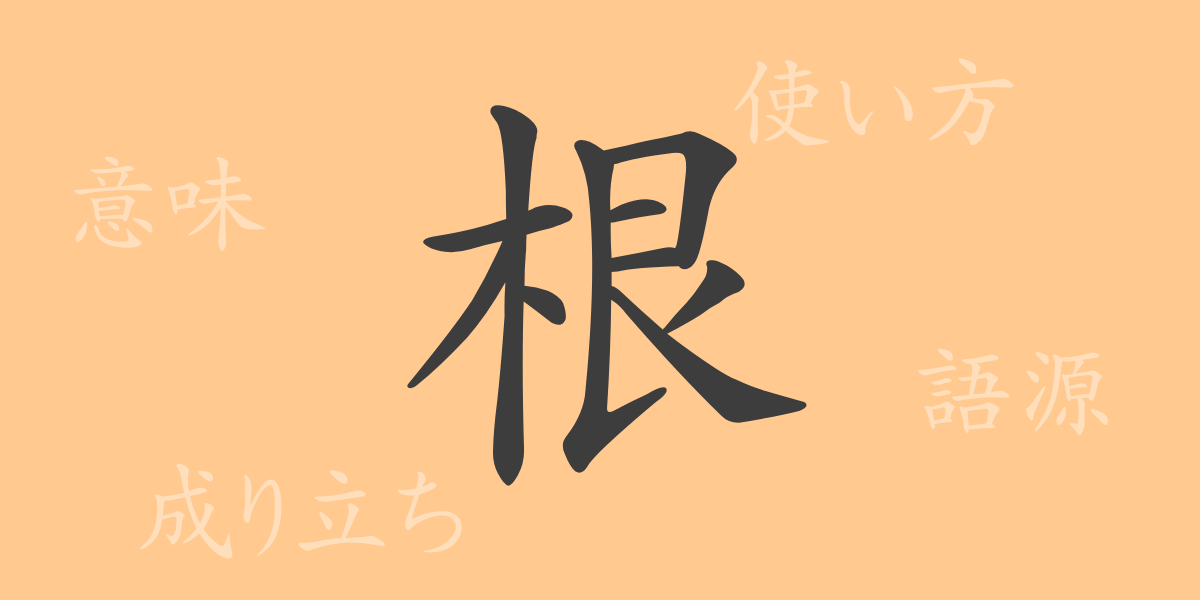In the Japanese language, there are numerous kanji characters, and among them, “根(ね, ne)” is deeply rooted in our daily lives. This single character, with its rich meanings and uses, from its etymology to its compounds, showcases the profoundness of Japanese culture and language. Today, we delve into the charm of this commonly used kanji, “根(ね, ne).”
Origin of 根(ね, ne)
The kanji “根(ね, ne)” developed from pictographs representing the lower part of a tree. It originated in ancient China, where it was used to mean the roots of a tree, and this meaning was carried over to Japan. The character’s structure symbolizes the roots spreading underground, supporting the life of the plant, and it has come to be used metaphorically as well.
Meaning and Usage of 根(ね, ne)
Directly, the kanji “根(ね, ne)” refers to the roots of a plant. However, it is also widely used to mean “the foundation, origin, or deep part of something.” For example, it appears in expressions like “根本的な問題(konponteki na mondai, fundamental problem)” and “根気強い(konki dzuyoi, persistent),” indicating fundamental aspects or qualities.
Reading, Stroke Count, and Radical of 根(ね, ne)
The kanji “根(ね, ne)” has several readings.
- Reading: The on’yomi (音読み) is “コン(kon),” and the kun’yomi (訓読み) is “ね(ne).”
- Stroke count: The kanji “根(ね, ne)” has a total of 10 strokes.
- Radical: The radical is 木(き, ki), meaning “tree.”
Idioms, Phrases, and Proverbs Using 根(ね, ne)
There are many idioms, phrases, and proverbs that include “根(ね, ne).” Here are some examples:
- 根気(こんき, konki): Persistence, the tenacity to work on something for a long time.
- 根拠(こんきょ, konkyo): The basis or evidence for something.
- 根回し(ねまわし, nemawashi): Preparatory work done to gain understanding or cooperation beforehand.
- 根性論(こんじょうろん, konjōron): The belief that a strong will can overcome anything.
- “根が深い(ねがふかい, ne ga fukai)”: A problem that is complex and difficult to solve.
- “根も葉もない(ねもはもない, ne mo ha mo nai)”: Something that is baseless and without any truth.
Conclusion on 根(ね, ne)
The kanji “根(ね, ne)” not only represents an essential part of nature but also appears in various expressions and proverbs in the Japanese language. It is used to denote fundamental or essential aspects, making it a key word in many contexts. Understanding such common kanji is crucial for a deep comprehension of the Japanese language.

























